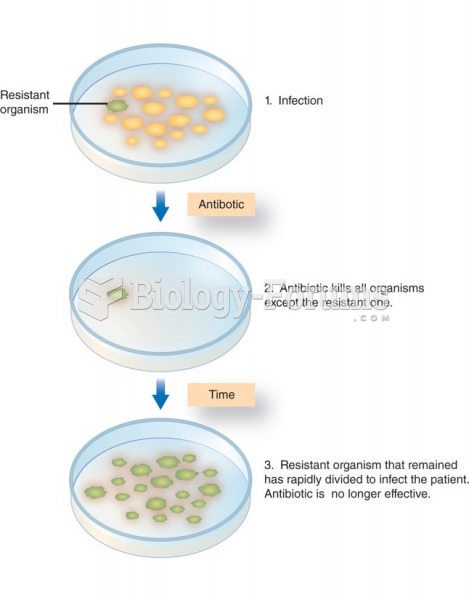|
|
|
Chronic marijuana use can damage the white blood cells and reduce the immune system's ability to respond to disease by as much as 40%. Without a strong immune system, the body is vulnerable to all kinds of degenerative and infectious diseases.
Aspirin is the most widely used drug in the world. It has even been recognized as such by the Guinness Book of World Records.
In ancient Rome, many of the richer people in the population had lead-induced gout. The reason for this is unclear. Lead poisoning has also been linked to madness.
Medication errors are more common among seriously ill patients than with those with minor conditions.
The average person is easily confused by the terms pharmaceutics and pharmacology, thinking they are one and the same. Whereas pharmaceutics is the science of preparing and dispensing drugs (otherwise known as the science of pharmacy), pharmacology is the study of medications.
 Vision with macular degeneration is experienced with an inability to focus in the center of the visu
Vision with macular degeneration is experienced with an inability to focus in the center of the visu
 How lenses correct visual problems: (A) emmetropia; (B) myopia; (C) hyperopia; (D) corrected myopia; ...
How lenses correct visual problems: (A) emmetropia; (B) myopia; (C) hyperopia; (D) corrected myopia; ...





